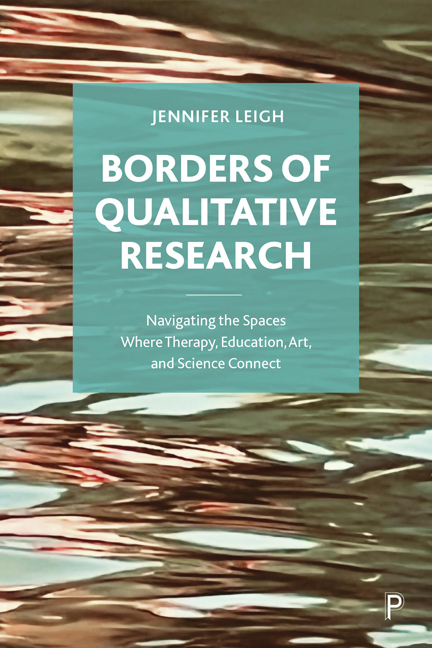 Borders of Qualitative Research
Borders of Qualitative Research Lesson 2 - Awareness
Published online by Cambridge University Press: 28 March 2024
Summary
In order to be the best qualitative researcher possible, it is essential to reflect. The previous lesson demonstrated that this is most effective when it results from embodied self-awareness. This long lesson begins with exploring the discourses of embodiment, bodies, and moving bodies, before investigating somatics as a tool for developing awareness, and how it can be used both therapeutically and educationally as well as for research. I end with an example of using somatics to teach young children to become more aware. But to start, what do I even mean when I use the term ‘embodiment’?
Embodiment
The idea of embodiment is contested (Sheets-Johnstone 2015). ‘Embodiment’ can describe the way our bodies represent ourselves at an individual or cultural level. This would be the definition used by many sociologists, such as Chris Shilling (2005, 2008, 2012) or Nick Crossley (2006). My use of embodiment rests on ‘fundamentally different assumptions’ from those of many sociologists (Totton 2009: 189). For example, Crossley’s work on Reflexive Embodiment includes ‘practices of body modification, maintenance and … body-image’ (Crossley 2006: 1). His understanding of ‘bodywork’ is work that is done on the body to change its appearance or function. Although he includes feelings and emotions we have about our bodies in his discussions of the social and constructed meanings attached to diverse bodywork or practices such as tattooing, eating, and exercise; his view of embodiment does not necessarily mean a self-awareness and consciousness being brought to the feelings and sensations within the body. Or Laura Ellingson, who rather than seeing her body and mind to be connected, saw her body as ‘troublesome’ (Ellingson 2017: 5) demanding her ‘continual attention and accommodation, making it impossible to ignore the ways in which embodiment necessarily affects (and is affected by) [her] research processes’ (Ellingson 2017: 5). Crossley and other sociologists might say that everything we do is embodied because we are embodied beings – living, breathing, meat sacks moving about the world. They would not necessarily agree with my definition that embodiment equates to conscious self-awareness of the body. Maxine Sheets-Johnstone, a dancer and philosopher, would say that my use of the word is wrong and what I mean by embodiment is instead ‘kinaesthetic awareness’.
- Type
- Chapter
- Information
- Borders of Qualitative ResearchNavigating the Spaces Where Therapy, Education, Art, and Science Connect, pp. 35 - 62Publisher: Bristol University PressPrint publication year: 2023


